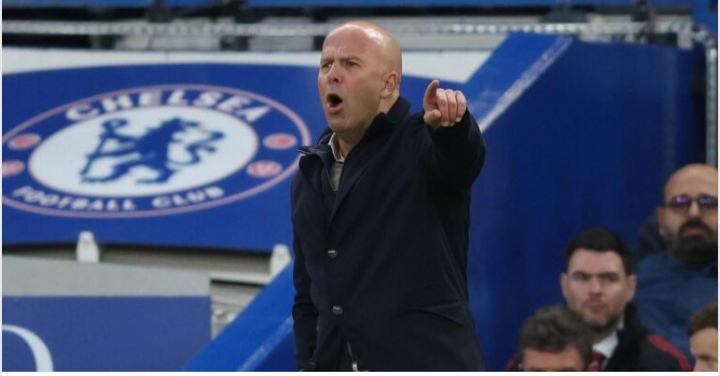Liverpool’s Early Woes Deepen as Konaté Substitution Symbolizes Slot’s Ruthless Reality Check
Liverpool fans have witnessed every shade of emotion over the years — glory and heartbreak, triumph and despair — but the start of this season under Arne Slot has been one many would rather forget. Arriving at Stamford Bridge with optimism, the Reds left in silence, their faces painted with frustration and concern. For the third consecutive game, they fell behind and struggled to recover, their early-season fragility laid bare once more.
Chelsea, sharp and assertive from the opening whistle, seized control through Moisés Caicedo, whose thunderous strike ignited the home crowd and left Liverpool chasing shadows. For Giorgi Mamardashvili, making his Premier League debut in goal, it was a baptism of fire — powerless to prevent the opener and quickly realizing the harsh realities of English football.
Liverpool tried to rally, to find rhythm, to rediscover their identity. But instead, familiar cracks reappeared. The defence, a recurring problem this season, looked disjointed, with Ibrahima Konaté particularly unsettled. Once viewed as a cornerstone of Liverpool’s back line, the Frenchman appeared off-balance and uncertain, his passing hesitant and his positioning exposed. By the tenth minute of the second half, Slot had seen enough. Konaté was withdrawn, Ryan Gravenberch dropping into defence — a move that stunned fans but spoke volumes about the manager’s intent.
To some, it seemed harsh. To others, it was a necessary correction. Gary Neville, analysing the match, summed it up bluntly: “If you watch Konaté on the ball, he was just walking with it. It was frustrating. Arne Slot clearly saw it too — he needed someone more composed on the ball. It was a bold call.”
For Slot, the decision wasn’t personal; it was tactical. Liverpool’s issues ran deeper than one player’s form. The manager sought control and tempo in a game slipping away. Yet whispers suggested Konaté might have been carrying a knock — seen stretching his quad and moving gingerly before being replaced. If so, the substitution doubled as protection rather than punishment, a reflection of Slot’s pragmatism under pressure.
The broader problem, however, persists. Liverpool’s defensive frailty has defined their uneven start. Injuries have reduced options, forcing constant reshuffles. Joe Gomez remains the only fully fit senior centre-back, leaving Slot with limited flexibility and immense responsibility. His willingness to act decisively — even shifting midfielders into defence — underscores both his tactical boldness and the precariousness of Liverpool’s situation.
Konaté’s struggles mirror the team’s growing pains under new leadership. The expectations are enormous, the scrutiny relentless. Every misplaced pass is amplified; every substitution fuels debate. Social media buzzed after the match — was Slot too ruthless? Was Konaté unfit? Or was this simply the reality of elite-level competition, where hesitation costs points?
Yet beneath the criticism lies empathy. Players often carry unseen fatigue or minor injuries that influence performance. Konaté, still only 26, continues to develop the resilience and consistency demanded at Liverpool. His effort, even while visibly struggling, reflected his commitment — a microcosm of a team searching for balance, rhythm, and belief.
For Slot, the challenge is both tactical and psychological. His philosophy demands precision, pressing, and control. When those elements falter, swift intervention is necessary. His decision to remove Konaté may have seemed abrupt, but it reaffirmed a principle central to his management: the team’s needs outweigh individual pride.
Liverpool’s defensive instability is not about one player. It’s a systemic issue — shaped by injuries, adaptation to new systems, and the unforgiving pace of Premier League competition. Slot’s task now is to restore structure, manage fitness, and rebuild confidence in a squad still learning his methods.
For Konaté, the road back requires patience and resilience. He must rediscover rhythm, regain confidence, and remind supporters why he was once seen as Virgil van Dijk’s heir apparent. His response — in training, in attitude, in performance — will define not just his season, but Liverpool’s defensive future.
Saturday’s defeat was a reminder of football’s fine margins and the ruthlessness of elite management. Slot’s decision may have stung, but it also underscored his authority — and his belief that no player, regardless of reputation, is beyond accountability.
Liverpool’s season remains young, their ambitions intact. The lessons from Stamford Bridge are clear: concentration, composure, and collective resilience must return. In adversity lies opportunity — and for Konaté and Slot alike, redemption still awaits.






